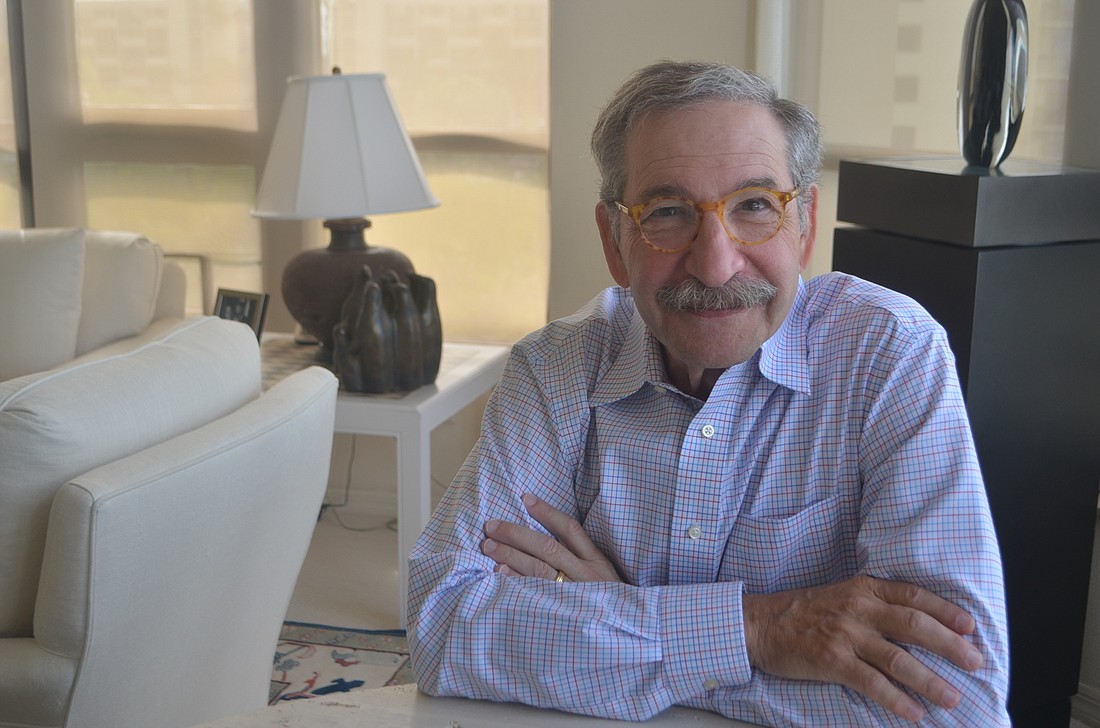- November 26, 2024
-
-
Loading

Loading

Early in Dr. Stuart Mushlin’s career in private practice, a patient came in with a hard-to-pinpoint illness.
After days of poring over volumes in the local hospital’s research library and sleeping in the patient’s room to get a better sense of his symptoms, he discovered the patient needed plasma-replacement therapy for what was then called Moschcowitz syndrome, a rare condition that affects blood coagulation.
Six months later, when Mushlin learned his patient hadn’t begun paying his medical bills, Mushlin asked him about his payment plans.
The man explained he had spent every insurance check at the race track, betting on “ponies.”
It’s this story and others that Mushlin compiled into his book “Playing the Ponies and Other Medical Mysteries Solved.”
“I learned something,” Mushlin said. “I thought I was pretty clever figuring out what he had, and all he could process was how lousy his life was, and he didn’t give a hoot about me or my brilliance, and so that’s playing the ponies.”
Mushlin is an academic physician. He hoped to be an English professor, but when the draft for the Vietnam War began, he applied for medical school. Because of his atypical path to medical school, he got few interviews, but some of the better schools were interested because he was different. He went to Cornell University. Today, he is on the faculty at Harvard Medical School but does research at Brigham and Women’s Hospital in Boston.
After his training at Brigham and Women’s, Mushlin moved to private practice. After 16 years, he realized how much he missed academia and switched back. Now he teaches physicians-in-training, emphasizing that it’s never about them. It’s always about the patient.
“You’re used to doing very well on tests. You’re used to getting the right answers, and what that tends to do is devise you from the reality the patient is feeling,” Mushlin said.
Mushlin, a Longboat winter resident, said his book is something that was inside of him, a notion he thinks artists can understand. He said the full concept came about because as an English major, he read novels such as “Great Expectations” and “A Tale of Two Cities” with amazing characters. When he became a physician, he met interesting people, not in terms of their illnesses but in terms of their character. Because of that, his book has two purposes.
“[There were] a lot of these vivid people, and some of them coincidentally had very strange illnesses or illnesses I couldn’t figure out,’’ he said. “So the second part of the book, parallel to the description of the character, was what these people taught me about practicing medicine, the mistakes I made and acknowledge in the book, the things I learned over time about dealing with people or dealing with their families or understanding what their expectations were.”
The book is full of stories of Mushlin stumbling upon the correct answer. He hopes people read between the lines and get a deeper understanding of his stories.
“I hope it says a lot about being there for your patients, being persistent, to not giving up, trying to get the right answers, if not immediately right away, and I’ve made mistakes in my life,” he said.
As for those mistakes, he’s embarrassed to admit them, but he wants his students to know they’ll make mistakes, too. He said some students get a sense of being invulnerable when attending the top medical schools.
“... [B]ut life will happen to you and even with the best of intentions, you’ll screw up and you have to be able to acknowledge it,” he said. “You have to be able to be humble and you have to make sure your focus is on the patient in front of you. If you do that, you’ll be able to look yourself in the mirror every day and say, ‘I may not be perfect, but I’m a reasonably capable doctor.’”